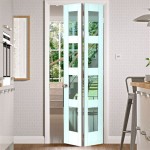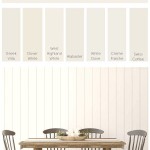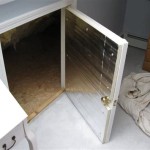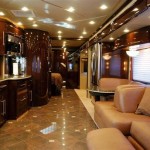Finding the Best Interior Decorator Near You: A Comprehensive Guide
Selecting an interior decorator can be a pivotal decision in transforming a house into a home. The ideal decorator possesses a blend of artistic vision, technical expertise, and project management skills. Locating the "best interior decorator near me" requires a systematic approach, considering various factors to ensure a successful and satisfying collaboration. This article provides a comprehensive guide to navigate the selection process, offering insights into identifying qualified professionals and evaluating their suitability for specific projects.
The realm of interior decoration encompasses a broad spectrum of services, ranging from space planning and furniture selection to color consultation and the incorporation of decorative elements. A skilled decorator can elevate the aesthetic appeal of a space while simultaneously optimizing its functionality. Understanding the specific requirements of a project is the first step in identifying decorators with the appropriate skillset and experience. This initial assessment will streamline the search and ensure that potential candidates are aligned with the project's goals.
The search for an interior decorator should extend beyond mere aesthetics. A reputable decorator should also possess a strong understanding of building codes, safety regulations, and accessibility standards. They should be adept at collaborating with contractors, architects, and other professionals involved in the project. Furthermore, effective communication skills are paramount, enabling the decorator to clearly articulate their vision and effectively manage client expectations.
Key Point 1: Identifying Your Needs and Defining Your Style
Before initiating the search for an interior decorator, it is crucial to define the scope of the project and clarify personal design preferences. This preparatory phase involves a thorough assessment of the spaces to be decorated, the intended functionality of each room, and the desired aesthetic outcome. Are the intentions solely cosmetic improvements, or does the project involve structural modifications? Understanding the extent of the undertaking will help narrow down the field of potential candidates.
Furthermore, reflecting upon your stylistic inclinations is crucial. Compile visual references – photographs, magazine clippings, or online images – that resonate with your aesthetic sensibilities. Identify recurring themes, color palettes, and furniture styles that reflect your personal taste. This visual library will serve as a valuable reference point when communicating with potential decorators, ensuring they have a clear understanding of your design preferences. Common design styles include, but are not limited to, modern, minimalist, traditional, bohemian, and industrial. Each style carries distinct characteristics in terms of color palettes, material choices, and furniture designs.
Budget considerations are also integral to this initial phase. Establish a realistic budget range for the project, encompassing design fees, material costs, labor expenses, and any potential contingencies. Transparency regarding budgetary limitations will enable the decorator to tailor their recommendations accordingly, preventing potential cost overruns and ensuring the project remains financially viable. Detailing specific budget allocations for different aspects of the project can prevent misunderstanding later in the process.
Finally, consider the timeline for project completion. Establishing a realistic timeframe will allow the decorator to effectively schedule resources and manage expectations. This is especially important for projects involving extensive renovations or custom-made furnishings. A clear timeline also facilitates effective communication and ensures that the project progresses in a timely manner.
Key Point 2: Utilizing Online Resources and Local Networks
The digital age provides a wealth of resources for identifying potential interior decorators. Online platforms such as Houzz, Yelp, and Angi (formerly Angie's List) feature directories of decorators, complete with client reviews, project portfolios, and contact information. These platforms allow for efficient comparison of different decorators based on their experience, expertise, and client feedback.
When evaluating online profiles, pay close attention to the consistency and authenticity of the reviews. Look for detailed testimonials that provide specific insights into the decorator's work ethic, communication skills, and problem-solving abilities. Be wary of overly generic or suspiciously positive reviews. Cross-referencing reviews across multiple platforms can provide a more balanced and reliable assessment.
Beyond online resources, leverage local networks to identify potential candidates. Seek recommendations from friends, family members, and colleagues who have recently undertaken interior decoration projects. Personal referrals often provide valuable insights into the decorator's professionalism and reliability. Local community groups and home improvement stores may also offer recommendations for qualified decorators in the area.
Consider consulting with local architects or contractors, who may have established relationships with reputable interior decorators. These professionals can provide valuable recommendations based on their experience collaborating with various decorators on past projects. This indirect approach can offer a unique perspective on the decorator's technical skills and project management capabilities.
Social media platforms, such as Instagram and Pinterest, can also serve as valuable resources for discovering local interior decorators. Many decorators showcase their work through visually appealing portfolios on these platforms. Following local design trends and hashtags can lead to the discovery of talented decorators whose aesthetic aligns with your preferences.
Key Point 3: Evaluating Portfolios, Conducting Interviews, and Checking Credentials
Once a shortlist of potential decorators has been compiled, the next step involves a thorough evaluation of their portfolios. A well-curated portfolio should showcase a diverse range of projects, demonstrating the decorator's versatility and adaptability. Pay close attention to the quality of the photographs, the attention to detail, and the overall aesthetic appeal of the spaces. A portfolio should be visually cohesive and reflective of a consistent design sensibility.
Consider the stylistic range displayed in the portfolio. Does the decorator specialize in a particular style, or are they capable of adapting to different design preferences? If your project requires a specific aesthetic, ensure that the decorator has demonstrable experience in that area. Look for projects that closely resemble your own vision and assess the decorator's ability to translate abstract concepts into tangible results.
Following the portfolio review, schedule interviews with the shortlisted decorators. During the interview, inquire about their design process, their communication style, and their approach to problem-solving. Ask specific questions about their experience with projects similar to yours, and gauge their level of enthusiasm and commitment. A good decorator should be able to articulate their design philosophy clearly and demonstrate a genuine interest in understanding your needs and preferences.
Inquire about the decorator's fee structure and payment terms. Some decorators charge an hourly rate, while others charge a flat fee for the entire project. Ensure that the fee structure is clearly defined and transparent, and that all potential costs are outlined in a written agreement. Understanding the payment schedule will prevent any misunderstandings or disputes later in the project.
Finally, verify the decorator's credentials and licenses. Depending on the location, interior decorators may be required to hold specific licenses or certifications. Check with local authorities to determine the licensing requirements in your area, and ensure that the decorator is in compliance. Obtaining proof of insurance protects both the client and the decorator in the event of an accident or property damage during the project.
Request references from previous clients and take the time to contact them. Inquire about their experience working with the decorator, their level of satisfaction with the final outcome, and any challenges that arose during the project. A thorough background check will provide valuable insights into the decorator's professionalism and reliability.
Thorough research and diligent evaluation are essential steps in selecting the optimal interior decorator for your projects. This investment of time and effort will translate into a more positive experience and an exemplary finished product.

Best Interior Designers In Pune Home Interiors Designcafe

Best Interior Designers In Pune Home Interiors Designcafe

Interior Designers In Pune Give Us A Space Efficient 3 Bhk Flat

Interior Design Services In Pune With No Cost Emi Options

Vastu House Architects In Pune Best Interior Designers

Best Interior Designer In Pune Archives Woody Uncle Sam

Best Interior Designer In Hadapsar Pune Companies
Who Is The Best Interior Designer In Pune To Do My Brand New 3 Bhk Flat Within 7 8 Lakhs Quora

Best Interior Decorators Service Near Me At Rs 1200 Square Feet In Vasai Virar

Best Turnkey Interiors In Pune
Related Posts








